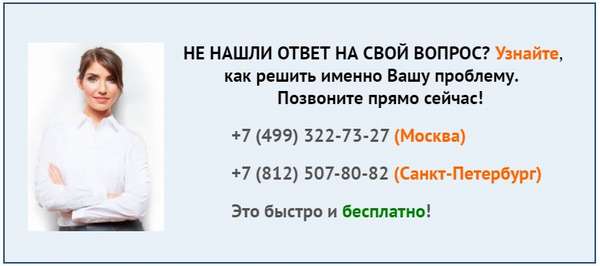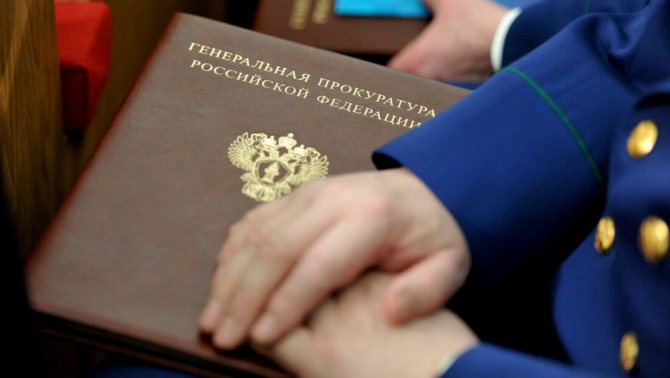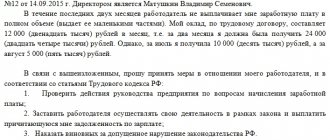Filing a complaint: description of grounds
The current norms of the Labor Code describe the provisions that can be used when drawing up complaints. According to the law, each member of the team has rights that cannot be violated. The same applies to leaders.
Violation of labor rights refers to direct violations of the current law. This means there is a reason to complain about a person who behaves inappropriately.
Collective complaints against bosses are filed for the following reasons:
- Unlawful dismissal due to violations that did not occur.
- Refusal to pay for additional overtime work, new responsibilities.
- Refusal to promote a citizen, although there are grounds for this.
- Refusal to pay for sick leave provided.
- Overtime work, about which there were no agreements.
- Refusal to provide vacation days.
- Refusal from official employment.
- Lack of required cash payments and bonuses.
It is worth carefully studying the Labor Code before filing a complaint against your manager. Only then do they draw up the petition itself, excluding the possibility of dismissal due to slander.
Managers may violate labor and civil rights. Such actions include:
- harassment;
- use of brute physical force;
- pressure, voicing threats;
- profanity;
- rude and boorish behavior.
On these grounds, ordinary class complaints and statements of claim are filed for trial. Additionally, a demand is made to compensate for moral damage in a certain amount.
Janitors read out a complaint against the despot director in this video:
The legislative framework
When writing a claim, you need to take into account a number of documents:
- Labor Code of the Russian Federation of December 30, 2001 No. 197-FZ;
- Federal Law “On the protection of the rights of legal entities and individual entrepreneurs in the exercise of state control (supervision) and municipal control” dated December 26, 2008 No. 294-FZ;
- RF PP “On the Federal Service for Environmental, Technological and Nuclear Supervision” dated July 30, 2004 No. 401;
- Government Order “On approval of the list of organizations and the list of territories subject to service by the FMBA of Russia” dated August 21, 2006 No. 1156-r;
- RF PP “On issues of state control (supervision) and invalidation of certain acts of the Government of the Russian Federation” dated June 5, 2013 No. 476;
- Federal Law “On the procedure for considering appeals from citizens of the Russian Federation” dated May 2, 2006 No. 59-FZ.
Where can I complain?
The main thing is to correctly indicate the addressee. Typically, this function is performed by a control body, the head of an enterprise, or the head of a specific department. Only if the recipient is correctly identified will the complaint be promptly considered, and the process itself will not raise questions.

There are the following authorities that have the right to accept documents:
- senior management;
- court;
- Labour Inspectorate;
- prosecutor's office
Standard design rules
Complaints can be individual or collective. The last variety gives the maximum effect. Then the sender becomes all members of the team who were dissatisfied with the boss’s action. Or, several employees whose rights and interests were directly violated are appointed as the main compilers.
The standard form of the document contains the following information:
- Company name, in full form.
- Full name of the manager on whose part the violation was committed.
- The position of the employee, with an exact indication of the full name.
- Reasons for drawing up the document. What rights are violated and how?
- Description of the essence of the problem.
- Date when the violation was committed.
- A requirement regarding what action must be taken by management.
- Date of the application.
- Applicant's signature.
The paper may be accompanied by additional documentary evidence. If necessary, it is permissible to refer to the testimony of witnesses.
How to write a complaint correctly, see here:
Useful tips
Experts give several recommendations that will help make the document as effective as possible:
- It is better to communicate with the other participants in advance. It's good if you can come to a common opinion.
- Before drawing up collective complaints, contact details of all parties are recorded separately. Then, if necessary, it will be easy to contact to discuss what is happening.
- Collective drafting of a complaint is literally ineffective. It is worth entrusting this procedure to one person. The main thing is to objectively reflect all the circumstances and facts that matter. The remaining participants simply study the document and, if necessary, put their signatures or make appropriate adjustments.
- The text must contain plural personal pronouns.
- The less emotions the better. It is advisable to present only facts and references to legislative standards confirming what has been said.
- The requirements are put forward in the final part.
- The signature sheet of all participants is a required attachment.
Regarding the rejection of a complaint to the labor inspectorate
There are several reasons why a higher authority refuses to consider incoming requests:
- Not all personal information is provided.
- The manager's data is incorrect or incomplete.
- Point of view is only subjective. The document was drawn up on emotions, and there are no compelling arguments in favor of the compiler. And there are no documents confirming existing violations on the part of the manager.
- A large number of errors, the presence of profanity.
- The complaint does not reach the addressee. In this case, it is recommended to send the documents again, adding the appropriate notes.
How to contact the labor inspectorate if your employer has violated your rights? See here:
Is there an alternative?
In labor legislation there is the concept of “collective labor dispute”.
These are unresolved disagreements between employees and employers on certain issues: changes in working conditions, collective agreements, refusal to take into account the opinion of the elected representative body of employees when adopting local regulations (Article 398 of the Labor Code of the Russian Federation). As you can see, such a “litigation” arises not when a conflict situation arises in a team, but when regulating work processes. Thus, in case of violation of the rights of workers by colleagues or managers, a collective labor dispute cannot be applied.
Summary. A complaint filed against a colleague or manager by one employee may be viewed critically (as the subjective view of a dissatisfied person), but a general complaint will be perceived differently. Therefore, a collective complaint is a more effective way of influencing a troublemaker in a company.
In some cases, it is better to send a complaint through all possible channels (both to the manager and to government agencies). In such a situation, the decision on this issue will not depend only on the system of relationships adopted in the organization.
Author: Nikuradze Anna Shotovna, senior lawyer of the Department of Labor Law of the Institute of Professional Personnel
What else should you consider when compiling?
Documents can be submitted anonymously. Then you should indicate in advance that information about the compilers is not disclosed. This is especially important when it comes to issues that are important to the operation of the entire enterprise.
Applications are sent in the form of a registered letter, then the senders will know exactly when the document was received by the other party.
Such complaints are reviewed within a month. During this time, the inspectorate must organize a thorough inspection of the enterprise. It is recommended to save the receipts that were issued when sending letters. After a month and a half, the sender receives a response from the labor inspectorate.
The labor inspectorate usually checks the following components of an enterprise's activities:
- the fact that employees are familiar with all documents related to the organization of work;
- personal accounts of subordinates along with wage statements;
- orders from management;
- local acts with employee data, rules on remuneration for labor, internal daily routine;
- pay sheets;
- time sheet;
- vacation schedule;
- staffing schedule;
- personal cards of subordinates;
- reporting on the movement of work books;
- contracts.
No statute provides that an employee can waive his complaint and the related review. The procedure is still mandatory, since it helps to identify administrative offenses.
In any case, the employee can say that the conflict situation has been resolved. This mitigates the punishment of managers, even if serious violations are discovered.
The statement withdrawing the complaint is written in the same form as the complaint itself. First, personal information is indicated for each of the parties. Then there is a description of the essence of the issue. The last elements are the date and paintings.
How to contact senior management

There are no restrictions regarding methods of submitting a claim.
This can be done in several ways:
- hand over personally
- send by mail with acknowledgment of delivery,
- through the contact form on the company’s website, if available,
- in other ways provided for by the company’s internal rules.
Sometimes enterprises install boxes for complaints and suggestions, and HR departments are ready to receive and consider them or forward them to managers.
Important! Write your complaint in two copies. When making a personal transfer, write down its number in the incoming message log, where the date of receipt, position and surname of the receiving person should be noted. When sending by mail, you must keep a receipt of the letter.
What answer can the labor inspectorate give?
There may be several options for responding to an appeal to the labor inspectorate:
- Bringing the manager to criminal liability, if there are grounds.
- Temporary cessation of the enterprise's activities until the violations are eliminated.
- Removal of a manager from office, on a temporary or permanent basis.
- Bringing to administrative liability, usually in the form of a fine. Its specific size depends on the severity of the violation.
- An instruction that identified problems should be corrected. The labor inspectorate rarely gives more than 1 month to complete the relevant actions. If no action is taken during this time, more serious measures are taken.
- On-site inspection for the purpose of inspection.
If talking doesn't help
In the event that an educational conversation with a negligent manager does not have much success, law enforcement agencies, tax authorities and state labor inspectors are involved in the inspections. A separate cost item for the employer is fines for avoiding concluding an employment contract. Companies pay 100 thousand rubles, their managers - 20 thousand rubles, individual entrepreneurs - 10 thousand rubles.
Unfortunately, not all employees know that fines may affect them, too. In case of repeated violation, the inspectorate may fine citizens 5 thousand rubles. In turn, the head of the company faces up to three years of disqualification, the company, like the employee, will get off with a fine of 200 thousand rubles, an individual entrepreneur - up to 40 thousand rubles.
Communication with the prosecutor's office
This authority also considers violations of the personal and labor rights of citizens.

Here are just some of the reasons when appeals are made directly to the prosecutor’s office:
- delay of vacations or salaries;
- insults;
- sexual harassment;
- assault.
After the prosecutor's office accepts the appeal, an official inspection is carried out for the organization. If violations are identified, the manager will be obliged to correct them. The responsible officials are subject to appropriate liability.
The reason for contacting, for example, may be an attempt to hide important information. This usually concerns accidents.
For information on the technique of writing a complaint to law enforcement agencies, see here:
Terms for consideration of the application
A complaint received by a state body, local government body or official must be considered within 30 days from the date of its receipt (Clause 1 of Article 12 of the Law of 02.05.2006 No. 59-FZ). The period is counted from the moment of registration of the written request. In some cases, the period for consideration of a complaint may be extended to 30 days, of which the applicant must be notified.
If a complaint from employees is sent to senior management, then the text indicates the desired period for consideration of the complaint. As a rule, in such cases the standard period is 10 days.
The response to the complaint must contain not only the solution to the problem, but also the deadlines for fulfilling the specified requirements. If the requirements specified in the appeal are denied to the applicants, then such a response must be legally justified.









